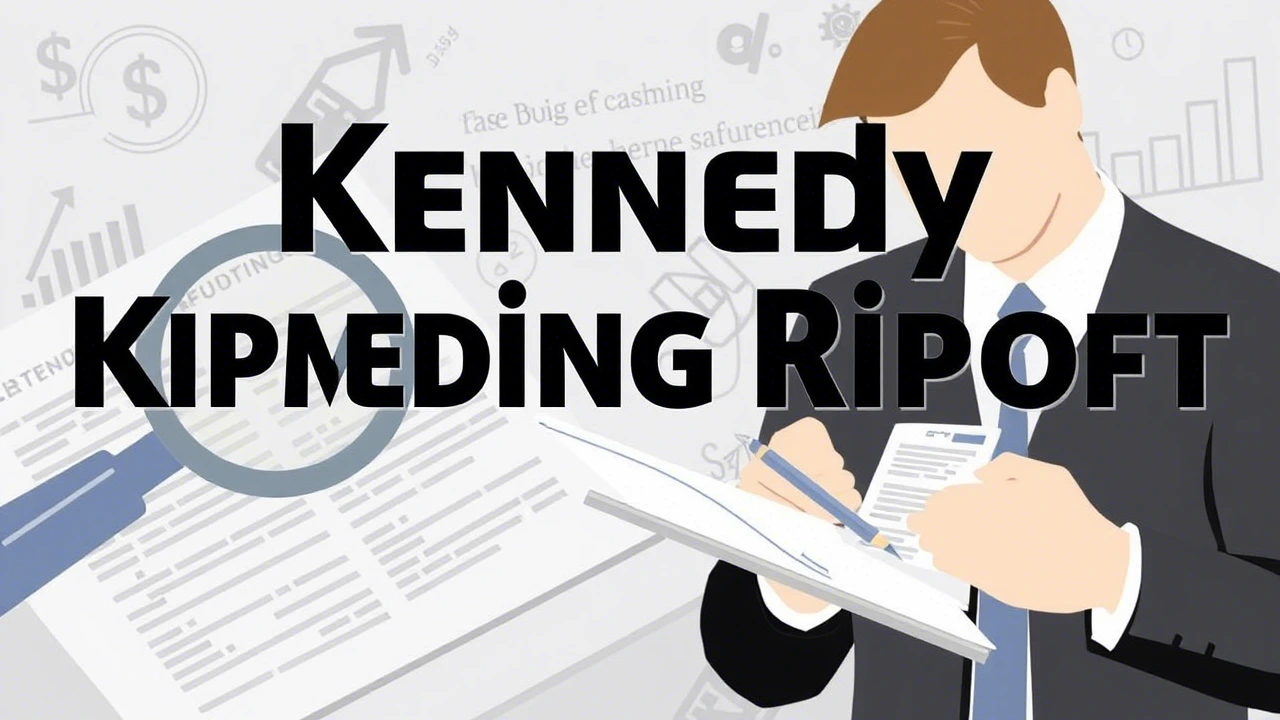When it comes to securing loans for real estate ventures, businesses often turn to specialized lenders like Kennedy Funding. However, recent discussions surrounding the “Kennedy Funding ripoff report” have raised eyebrows in the financial community. Many borrowers are questioning whether this private lender operates ethically or if there are hidden pitfalls that could make them regret their decision. In this article, we’ll explore every aspect of Kennedy Funding, from its services and reputation to customer reviews and legal concerns. By the end, you’ll have a clear understanding of whether this lender deserves your trust or if the allegations hold water.
Kennedy Funding positions itself as a direct private lender specializing in bridge loans, commercial real estate financing, and land loans. The company has been in operation for decades, offering quick access to capital for projects that traditional banks might shy away from. While this sounds appealing, especially for entrepreneurs and developers with unconventional needs, the phrase “Kennedy Funding ripoff report” has surfaced repeatedly across forums and review platforms. To uncover the reality behind these claims, we need to analyze several factors, including how the company operates, what customers say, and whether any red flags exist.
Understanding Kennedy Funding’s Business Model
Kennedy Funding operates differently from conventional banks. Instead of relying on strict credit scores and lengthy approval processes, they focus on the value of the collateral and the potential profitability of the project. This approach is particularly beneficial for borrowers who may not qualify for traditional loans due to poor credit history or incomplete documentation. For instance, someone looking to purchase raw land or renovate an old building might find Kennedy Funding more accommodating than a bank.
However, this flexibility comes at a cost—literally. Interest rates and fees charged by Kennedy Funding are typically higher than those offered by traditional lenders. While this is standard practice among private lenders, some customers have expressed dissatisfaction, claiming that the costs were misrepresented or excessive. These complaints contribute significantly to the narrative surrounding the “Kennedy Funding ripoff report.” Critics argue that while the company promises fast funding, the terms can sometimes be predatory, leaving borrowers with unsustainable debt burdens.
To better understand the pricing structure, here’s a simplified breakdown of what you might expect when dealing with Kennedy Funding:
| Loan Type | Interest Rate Range | Fees | Approval Time |
|---|---|---|---|
| Bridge Loan | 8% – 12% | Origination fee (1%-3%) | 5-10 business days |
| Commercial Real Estate | 9% – 14% | Appraisal & processing fees | 7-14 business days |
| Land Loan | 10% – 15% | Legal & closing costs | 10-20 business days |
These numbers highlight why some borrowers feel caught off guard. While the speed of approval is impressive, the high interest rates and additional charges can add up quickly, making repayment challenging for those unprepared.
Customer Experiences: What Reviews Say About Kennedy Funding
One of the most effective ways to gauge a company’s reliability is through customer feedback. When searching for insights into the “Kennedy Funding ripoff report,” numerous online reviews reveal a mixed bag of opinions. Some clients praise the lender for its efficiency and willingness to fund complex projects, while others describe frustrating encounters marked by misleading information and aggressive collection tactics.
Positive testimonials often emphasize the lender’s ability to close deals swiftly. For example, one satisfied client shared how Kennedy Funding helped them secure funding for a time-sensitive acquisition within just two weeks—a feat that would have been impossible with a traditional bank. Such success stories underscore the advantages of working with a private lender during urgent situations.
On the flip side, negative reviews paint a different picture. Several disgruntled borrowers claim they felt pressured into accepting unfavorable terms after being assured of competitive rates during initial consultations. Others report difficulties communicating with customer service representatives, describing the experience as impersonal and dismissive. One recurring complaint involves hidden fees that weren’t disclosed upfront, leading to unexpected expenses down the line. These grievances align closely with the concerns raised in the “Kennedy Funding ripoff report,” suggesting that transparency may indeed be an issue.
It’s worth noting that not all negative reviews stem from malicious intent. Sometimes, misunderstandings arise due to misaligned expectations. Borrowers unfamiliar with private lending norms might assume Kennedy Funding operates similarly to a bank, only to realize later that the terms differ significantly. Nevertheless, the sheer volume of complaints warrants closer scrutiny of the company’s practices.
Analyzing Legal and Ethical Concerns
Another critical factor to consider is whether Kennedy Funding has faced any legal actions or regulatory scrutiny. A thorough investigation reveals that the company hasn’t been immune to controversy over the years. Several lawsuits filed against Kennedy Funding allege deceptive marketing practices and breach of contract. Although the outcomes of these cases vary, they collectively fuel skepticism about the lender’s integrity.
For instance, one notable case involved a borrower who accused Kennedy Funding of failing to disclose key terms until after the loan agreement was signed. According to the plaintiff, the lender misrepresented the total cost of borrowing, resulting in significant financial strain. While the court ultimately ruled in favor of Kennedy Funding, citing insufficient evidence, the incident left a lasting impression on public perception. Stories like these reinforce the notion embedded in the “Kennedy Funding ripoff report”—that the company prioritizes profits over ethical conduct.
Regulatory bodies such as the Consumer Financial Protection Bureau (CFPB) also play a role in monitoring private lenders. Although no major fines or sanctions have been levied against Kennedy Funding specifically, the broader industry remains under constant watch. Private lenders must adhere to federal guidelines governing fair lending practices, disclosure requirements, and consumer protection laws. Any deviation from these standards could lead to penalties and reputational damage.
Despite these challenges, Kennedy Funding continues to operate successfully, serving thousands of clients annually. The question then becomes: Are the reported issues isolated incidents, or do they reflect systemic problems within the organization? To answer this, let’s delve deeper into the company’s internal policies and external partnerships.
Internal Policies and External Partnerships
Kennedy Funding prides itself on maintaining robust internal controls designed to ensure compliance with applicable regulations. The company employs a team of experienced underwriters and legal experts tasked with evaluating each application thoroughly. Additionally, third-party appraisers and auditors frequently collaborate with Kennedy Funding to verify asset valuations and assess risk levels. These measures aim to minimize errors and protect both the lender and the borrower.
Externally, Kennedy Funding partners with reputable institutions to enhance its offerings. For example, the company works closely with title companies and escrow agents to streamline the closing process. This collaborative approach benefits clients by reducing delays and ensuring smooth transactions. However, critics argue that reliance on external entities introduces another layer of complexity, potentially increasing costs and complicating communication channels.
Transparency remains a focal point of discussion. While Kennedy Funding provides detailed disclosures regarding interest rates, fees, and repayment schedules, some customers still feel blindsided by ancillary expenses. This disconnect highlights the importance of clear, concise communication throughout the lending journey. Improving transparency could go a long way toward mitigating the concerns outlined in the “Kennedy Funding ripoff report.”
Tips for Borrowers Considering Kennedy Funding
If you’re contemplating partnering with Kennedy Funding, it’s essential to proceed cautiously and arm yourself with knowledge. Here are some practical tips to help you navigate the process effectively:
- Research Thoroughly : Before committing to any lender, conduct extensive research. Look beyond the official website and seek out independent reviews, testimonials, and news articles. Pay special attention to mentions of the “Kennedy Funding ripoff report” to identify common themes or patterns.
- Ask Questions : Don’t hesitate to ask detailed questions about interest rates, fees, and repayment terms. Request written documentation outlining all costs associated with the loan. If anything seems unclear or inconsistent, seek clarification immediately.
- Compare Offers : Explore multiple lenders to compare rates and terms. Even if Kennedy Funding appears attractive initially, shopping around ensures you secure the best deal possible.
- Consult Professionals : Engage a lawyer or financial advisor to review the loan agreement before signing. Their expertise can help spot potential pitfalls and safeguard your interests.
- Monitor Communication : Maintain open lines of communication with Kennedy Funding throughout the process. Document all interactions, including emails, phone calls, and meetings, to create a paper trail in case disputes arise.
By following these steps, you can mitigate risks and make informed decisions about whether Kennedy Funding aligns with your needs.
Conclusion
The debate surrounding the “Kennedy Funding ripoff report” underscores the complexities of private lending. On one hand, the company offers valuable solutions for borrowers unable to access traditional financing. On the other hand, allegations of misleading practices and exorbitant fees cast doubt on its trustworthiness. Ultimately, the decision to work with Kennedy Funding depends on your unique circumstances and risk tolerance.
As with any financial transaction, due diligence is paramount. Take the time to evaluate all available options, scrutinize the fine print, and prioritize transparency. By doing so, you can avoid falling victim to predatory lending schemes and achieve your financial goals responsibly. Whether Kennedy Funding proves to be a reliable partner or a cautionary tale hinges largely on how well you prepare and advocate for yourself throughout the borrowing process.







